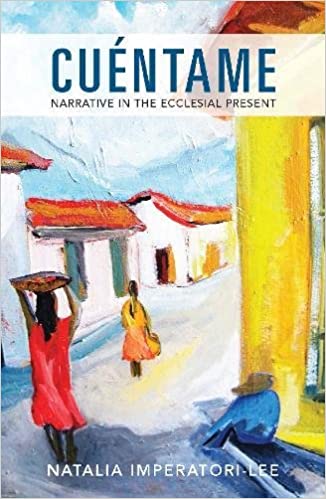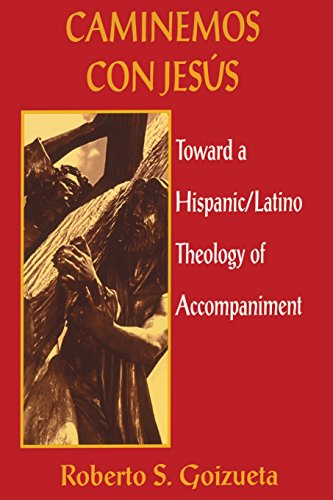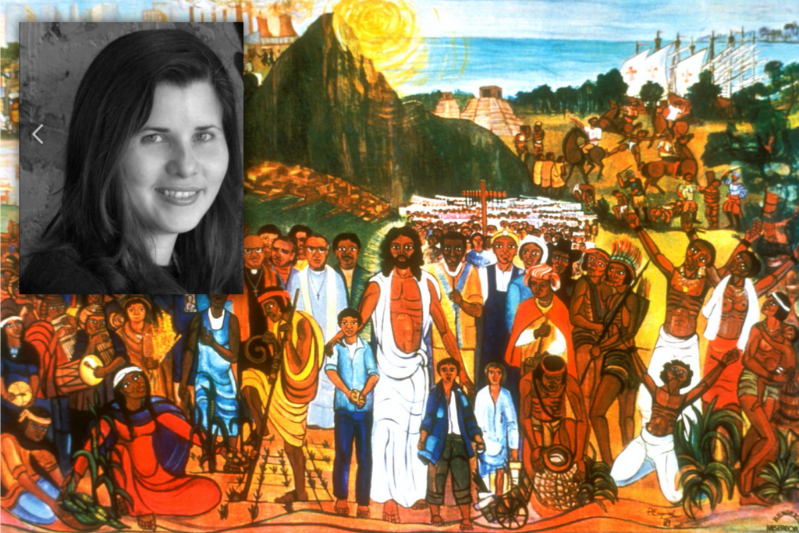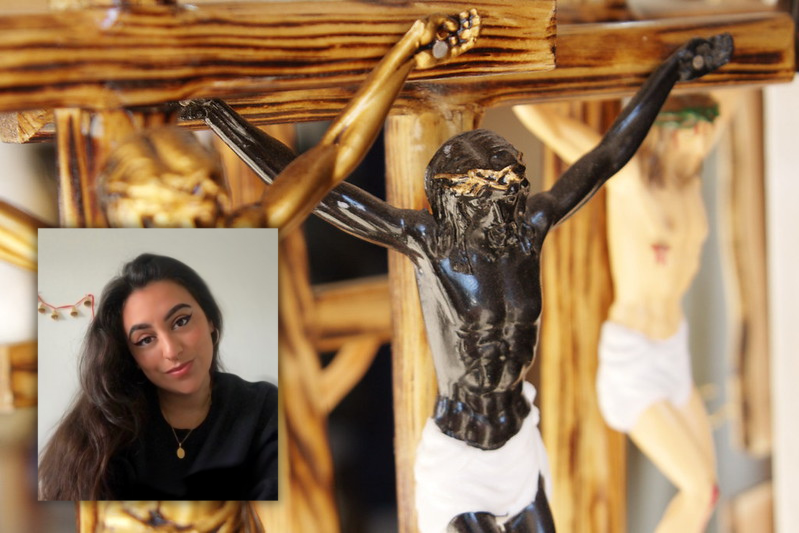Every year from September 15 to October 15, Americans celebrate National Hispanic Heritage Month by appreciating the community’s history, heritage, and contributions of the ancestors of American citizens who came from Mexico, Spain, the Caribbean, and South- and Central America. Did you know that Candler’s affiliate, the Emory Aquinas Center, has a diverse team focusing not only on programming, grant-writing, and Orthodox/Catholic dialogue, but also Hispanic outreach? Pitts Theology Library reached out to Acting Director, Alice Cameron, and Associate Director, Callie Tabor, for suggested resources to shed light on National Hispanic Heritage Month from a theological perspective.
SUGGESTED READINGS
Cuéntame: Narrative in the Ecclesial Present by Natalia Imperatori-Lee (Orbis Book, 2018)Pitts Theology Library Book Stacks, 1st Floor (BT83.575 .I47 2018 )

If a people is known by the stories it tells, so too is a church. Since its inception in the mid-1970s, Latino/a theology has redefined notions of personhood and relationship, culture and interculturality, and notions of the divine itself. However, a coherent, systematic Catholic ecclesiology has yet to be elaborated from a Latino/a perspective.
This book undertakes that systemization in a multidisciplinary way, drawing upon Latin American and U.S. Hispanic literature as well as theological reflection, to devise an ecclesiology shaped by narrative. The author analyzes a variety of narratives — fiction, history, religious rituals, demographic studies —to find viable starting points for systematizing the “story” of the Church, which is ultimately what ecclesiology seeks to do.
Caminemos con Jesús: Toward a Hispanic/Latino Theology of Accompaniment by Dr. Roberto Goizueta (Orbis Books, 1995)Pitts Theology Library Book Stacks, 1st Floor (BX1407 .H55 G65 1995)
 While the growth in both numbers and influence of Hispanics in North American Catholicism and Protestantism has been commented on widely, up until now there has been no systematic attempt to define a Hispanic theology. Roberto Goizueta, a Cuban-American theologian, aware that “Hispanic” and “Latino” can be terms imposed artificially on diverse peoples, finds a common link in the Spanish language and in a shared culture. Central to this culture is the experience of exile, of being a people at the margins of a society, who must find and make their way together. Central also is faith, and its grounding in this experience of being in exile. In delineating the very particular nature and worldview of Hispanic/Latino theology, Caminemos con Jesus challenges both traditional Euro-American theologies and modern Western epistemological assumptions. It examines the implications of this theological method for the Church and the academy, as well as for the future of the Latino community and North American society. Caminemos con Jesus provides lessons in discipleship for non-Hispanics and Hispanics alike, for students of contemporary theology, and all those engaged in pastoral and church-based work.
While the growth in both numbers and influence of Hispanics in North American Catholicism and Protestantism has been commented on widely, up until now there has been no systematic attempt to define a Hispanic theology. Roberto Goizueta, a Cuban-American theologian, aware that “Hispanic” and “Latino” can be terms imposed artificially on diverse peoples, finds a common link in the Spanish language and in a shared culture. Central to this culture is the experience of exile, of being a people at the margins of a society, who must find and make their way together. Central also is faith, and its grounding in this experience of being in exile. In delineating the very particular nature and worldview of Hispanic/Latino theology, Caminemos con Jesus challenges both traditional Euro-American theologies and modern Western epistemological assumptions. It examines the implications of this theological method for the Church and the academy, as well as for the future of the Latino community and North American society. Caminemos con Jesus provides lessons in discipleship for non-Hispanics and Hispanics alike, for students of contemporary theology, and all those engaged in pastoral and church-based work.
 “Public Health Needs Liberation Theology” by Claudia E. Ordóñez (Aquinas Emory Thinks, February 2021).
“Public Health Needs Liberation Theology” by Claudia E. Ordóñez (Aquinas Emory Thinks, February 2021).
Claudia E. Ordóñez, anthropologist and M.A. in Intercultural Relations, is Adjunct Faculty in the Hubert Department of Global Health, Rollins School of Public Health, at Emory University. She is proudly a Colombian immigrant and currently teaches at Emory and works in biomedical and public health research in the U.S. and South Africa.
 “Christ in Our Image” by Jessica Leu-Valencia (Aquinas Emory Thinks, September 2021)
“Christ in Our Image” by Jessica Leu-Valencia (Aquinas Emory Thinks, September 2021)
Jessica Leu-Valencia is an Ecuadorian Theologian and Interfaith activist currently in graduate school at Loyola Marymount University. She is a writer and editor for LMU’s Say Something Theological journal and is currently writing a bilingual devotional for the Black Christ of Daule.
We hope you’ll enjoy these thought provoking resources during an important month of recognition!
